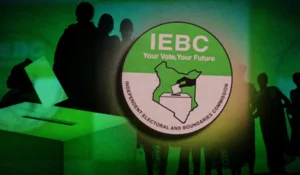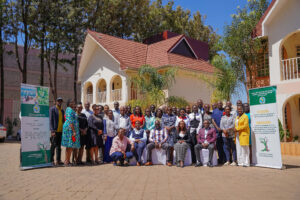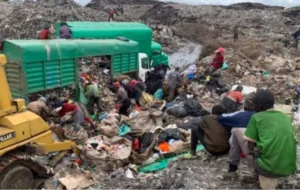Communities Face Displacement Over Carbon Credit Projects
Two significant cases have been documented. One involved the eviction of squatters to initiate a carbon credit project, leaving many people landless.

Chief Justice Martha Koome of Kenya led other judges in the official opening of the Environment qmd land Court Climate Justice Conference in Eldoret
By Jessica Nyaboke
Several communities in Uasin Gishu County have faced displacement due to the implementation of carbon credit projects.
Speaking at the Environment and Land Court Climate Justice Conference held in Eldoret, Ms. Kimeu highlighted the challenges faced by affected families.
She noted that while companies often conduct impact assessments on residents in the project areas, many families are forced to file legal cases due to a lack of compensation.
Ms. Jacklyne Kimeu cited the example of the wind power project in Turkana, which has not commenced operations despite displacing residents who remain uncompensated and now live in challenging conditions.
Dr. Wambua Kituku, addressing the issue of climate change-related litigation, mentioned that there has been minimal tracking of such cases in Kenya compared to the United States, where there are over 2,000 recorded cases.
In Kenya, only two significant cases have been documented. One involved the eviction of squatters to initiate a carbon credit project, leaving many people landless.
In another instance, a wind energy project in Lamu faced legal hurdles as communities sought court orders to halt the project due to perceived exclusion and a lack of shared benefits.
Dr. Wambua emphasized that many projects are implemented by private sector entities that often overlook regulations, leading to community displacement and subsequent legal disputes.
He stressed the need for a balance between commercial interests and the protection of land and environmental rights.
Parasei Sonei, representing the Maasai community, underscored that communities preserving their land are frequently sidelined in the decision-making process for carbon credit projects.
While such projects are intended to combat global warming, they often result in land acquisition without adequate community involvement or benefit-sharing.
He called for the identification and inclusion of local stakeholders in these initiatives to ensure equitable outcomes.
The speakers urged project developers to prioritize community engagement, adhere to regulations, and ensure fair compensation to avoid disputes and foster sustainable development.






